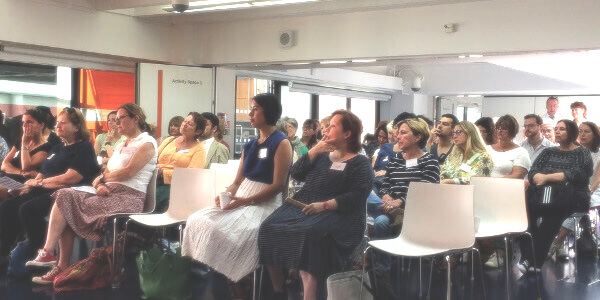UK SUMMER CONFERENCE: SATURDAY 7th JUNE 2025
Many thanks to everyone who attended, presented at, and/or worked at our summer conference this year - it was a very positive day, and a lot of fun!
We hope to see you all again at the Museum of London at around the same time next summer.
Until then, we hope you have a lovely summer, and do let us know if there's anything we can do to help with your Latin, Greek, or Classical Civilisation teaching.
